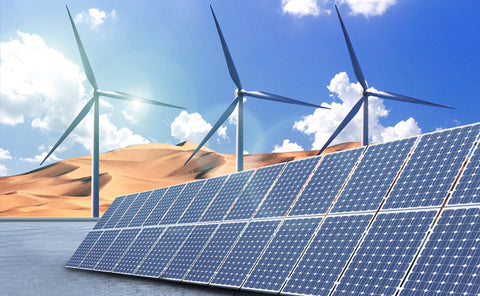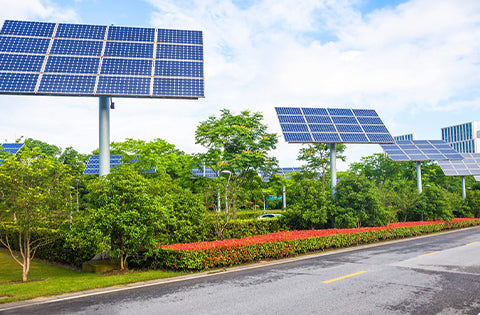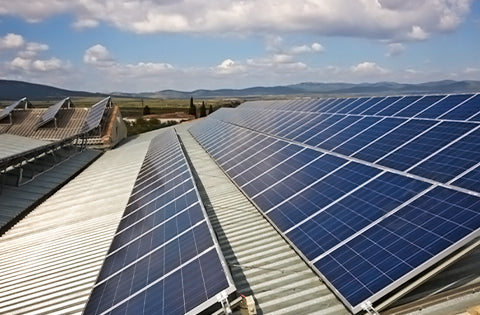The photovoltaic grid connected power generation system can be generally divided into two types: distributed and centralized. Distributed photovoltaic grid connected power generation systems are mostly individually installed on the user's side. They generate electricity to supply local loads and relieve the pressure of the mainstream power grid, and also located between smart grid and Microgrid as the interface. Distributed photovoltaic is featured with small area coverage and flexible operation mode. At present, they are mainly used in housing roofs, buildings, greenhouses, fish ponds, water pumps and street lamps.
Centralized photovoltaic grid connected power generation system mainly refers to large-scale photovoltaic power stations, which are mostly invested and installed by enterprises, companies and other units. As a large-capacity power supply, it directly transmits power to the high-voltage transmission system. It is generally built in the desert. It has the advantages of flexible site selection, short construction cycle, stable output, flexible operation mode, easy to participate in the voltage and frequency regulation of the power grid, and low operation cost, etc.

The common problems of the two are:
For the optimization of photovoltaic array configuration, the selection of modules, the inclination angle of module installation, the array topology and other aspects are optimized according to the design requirements and the surrounding environment.
Temperature rise, mismatch and hot spot phenomenon of photovoltaic array. As a result, the photovoltaic array is in a mismatched operation state, and hot spot effect occurs in serious cases, which reduces the service life of components.
The output characteristics of photovoltaic array show multi peak characteristics. Sometimes photovoltaic arrays may be combined with different types of photovoltaic modules, or even if the module models are the same, there is a mismatch between modules due to clouds, dust, aging and other reasons, so that their output characteristics show multi peak characteristics.
After the photovoltaic system is connected to the grid, power quality problems are caused. Research on the power quality of photovoltaic grid connected system will become a new research hotspot of photovoltaic power generation technology.
In addition, centralized photovoltaic also has unique problems. The cleaning of large-area photovoltaic arrays and the non ideal characteristics of inverters lead to increased maintenance and cleaning costs and reduced inverter conversion efficiency.
In view of the grand background of photovoltaic power generation, on the whole, distributed photovoltaic is still a little better, and it is expected to achieve anti overload in the future. Due to the large layout and wide involvement of centralized photovoltaic, many factors need to be considered. Relatively speaking, there is no wide distribution in the general selection.

SOLARPARTS will continue to strengthen its research and development in the field of distributed photovoltaic. In the future, the distributed photovoltaic market demand may usher in considerable potential benefits. This time, SOLARPARTS takes advantage of the momentum, to make up for the short board of market demand and jointly maintain the benign development of the product supply and demand relationship in the photovoltaic market. Contact us to get more photovoltaic information.
Twitter: Solarparts Instagram: Solarparts
Tumblr: Solarparts Pinterest: Solarparts
Facebook: Shenzhen Solarparts Inc
Email address: Philip@isolarparts.com
Homepage: www.isolarparts.com



